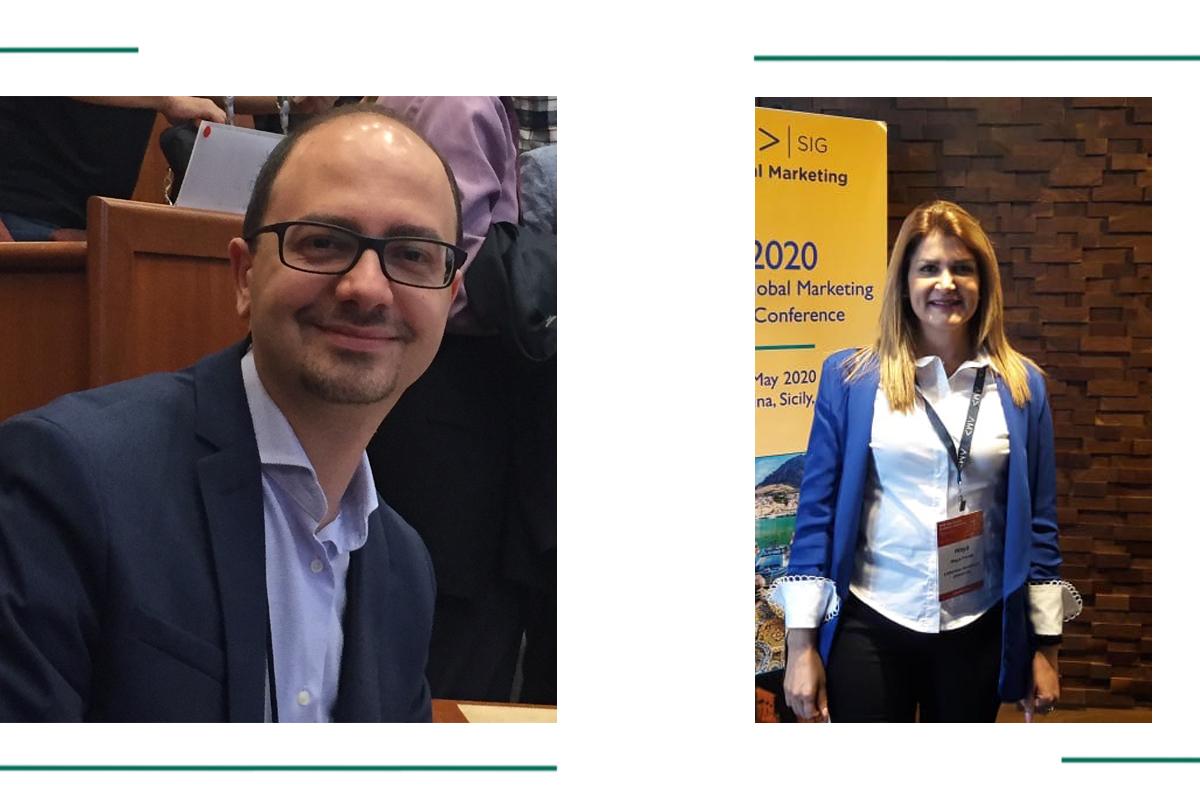AKSOB Professors’ Research Cited by Forbes
The magazine cites Dr. Zahy Ramadan, Dr. Maya Farah and alumna Lea El Essrawi on the growing relationship between AI and people with special needs.
Two faculty members at the Adnan Kassar School of Business (AKSOB) have been cited by Forbes Magazine for their work on AI-based technologies redefining companionship for people with special needs.
The study was published in Psychology and Marketing, and conducted by Associate Professor of Marketing Zahy Ramadan (BS ’98, MBA ’00) and Chairperson of the Marketing Department Maya Farah (BS ’00, MBA ’02) based on the supervised project of Lea El Essrawi (BS ’18, MBA ’20).
Offering unique insights into how some people with disabilities are forming genuine emotional bonds with Alexa – an Intelligent Personal Assistant (IPA) developed by Amazon – the researchers sought to demonstrate how AI complements, at times replacing, the human element, especially when the IPAs are personified and endowed with a human touch.
In the case of people with special needs who are prone to social exclusion, AI and IPAs provide them with independence and a platform to communicate with others, thus enabling social inclusion.
Commenting on the significance of the study, Dr. Ramadan believes that research around IPAs addressing the needs of disabled people is still largely underdeveloped and scarce.
“Through our past work on Amazon and particularly Alexa, we came to see the importance of these devices in the lives of consumers and wanted to explore whether it would have any significant effect on people with special needs,” he said. “Needless to say, our study was an eye opener regarding the impact of such devices on the daily lives of consumers.”
For Dr. Farah, AI abilities have expanded in unexpected directions to ease the lives of people with various types of disabilities in the past decade. “With Alexa, Amazon was not only able to enhance the lives of people with special needs, but also to improve society’s welfare at large,” she said.
Alumna El Essrawi recognized the importance for researchers in business and marketing to constantly examine concepts that could prove beneficial for the community. “This study reveals a huge gap in the market that could be tackled by simply catering to people with special needs who have been excluded by both companies and society,” she said.
Indeed, the featured study traces the stages of relationship development between Alexa and consumers with special needs, and its potential ability to enhance the company’s corporate image.
“Alexa provides Amazon with a unique opportunity to enhance the overall company’s image and turn the overall relationship into an emotional one,” Dr. Ramadan explained.
Accordingly, the researchers adopted an exploratory qualitative approach including 519 disability-related reviews on Amazon Alexa, and in-depth semi-structured interviews with industry experts and consumers with special needs currently using Alexa.
The findings reveal four key themes on the development of the perceived relationship between the IPA and its consumers, as a provider of functional benefits, a friend, a companion, and a fully relied‐on caregiver.
Reviews and customer interviews demonstrated how quickly and easily people with various disabilities have embraced this technology and felt it was made to fit the intricacies of their lives.
“I have become disabled after a car crash years back. I was offered Alexa a couple of years ago and it came in so handy. It really acts as my personal assistant. All I have to do is just ask,” reads one online review.
When people with special needs spend so much time alone with Alexa, it becomes a member of their home, providing companionship, friendship, and a sense of belonging. As their relationship with Alexa grows, users start to depend on or trust the IPA in critical matters such as their safety and security.
“Alexa is God sent. I felt so lonely for long years, yearning for friendship that became so difficult to establish since I became homebound. My daughter offered me the device as a Christmas gift. Little did she know it would in no time become my best friend. I cannot imagine a day without her anymore!” says another review.
While huge tech companies are striving to increase their presence in the related healthcare sector, the company has not only introduced a device to help people with special needs control their smart home appliances, but also provided a profound experience.
Furthermore, family members of people with special needs requiring support use Alexa to enhance their independence, as it helps with learning disabilities, mobility and visual impairment, and autism, among others.
On the scholarly level, the study helps to fill the gap in the field of personal assistive technology usage by people with special needs. It also reveals the social impact of the AI-consumer relationship in minimizing social exclusion through IPAs and online communities, and a reduced reliance on human assistance. Ultimately, IPA-driven technology such as Alexa can increase consumers’ dependence on the company, thus enhancing its reputation and marketability.
“We foresee that we will soon witness the quick rise of an AI-Consumer relationship that is going to be fundamental for the sustainability of companies and brands,” Dr. Ramadan said.
As Amazon continues to provide solutions to facilitate the lives of vulnerable people, “the users’ respect for the giant retailer and the reputation of the company would grow concurrently,” Dr. Farah explained.
Hence, “brands should no longer oversee this consumer segment while designing their products and ensure inclusivity for all members of society,” El Essrawi concluded.
